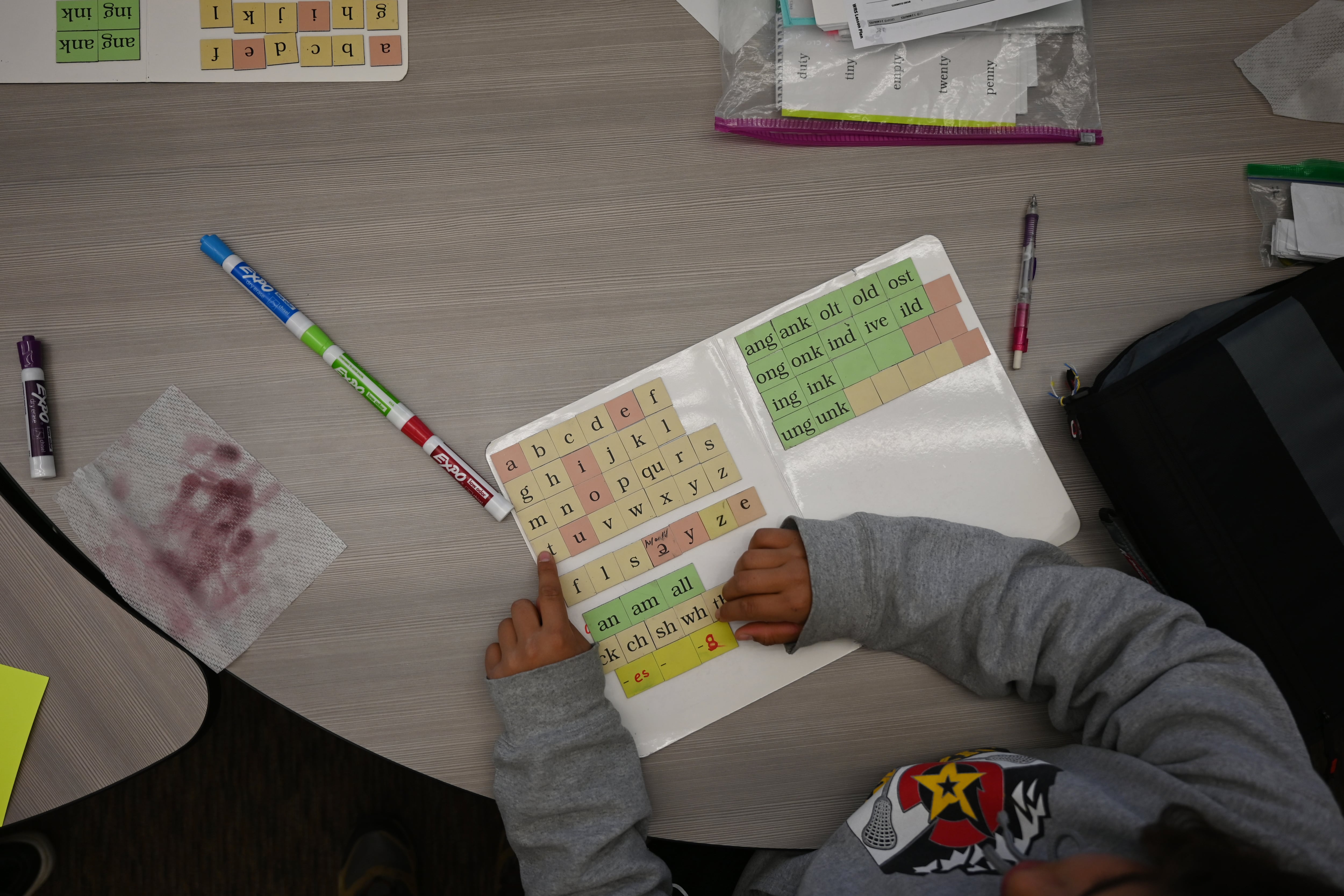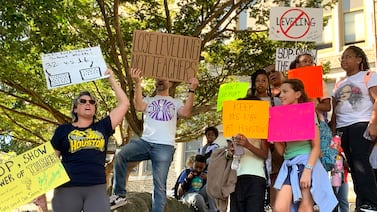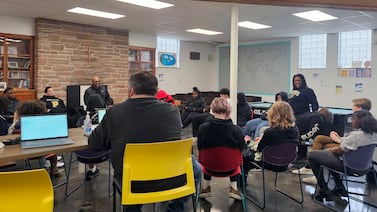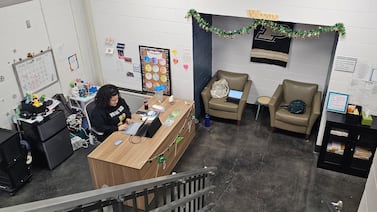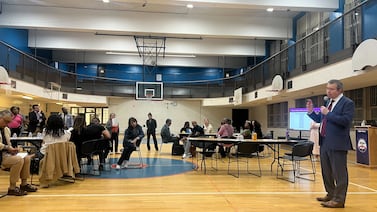Colorado would fund special education at the levels lawmakers promised back in 2006 under legislation recommended unanimously Friday by a special committee on school finance.
The special education bill was the only one recommended this year by the school finance committee, which originally convened six years ago with the goal of rewriting Colorado’s decades-old school funding formula. House Speaker Julie McCluskie said she’s still hoping to present a new formula to lawmakers outside the committee process.
The special education bill would reimburse districts $6,000 for every student with what’s known as a Tier B disability that requires more intensive support for students to be successful in school. These include dyslexia, autism spectrum disorders, developmental delays, deafness, blindness, emotional disabilities, and traumatic brain injuries, among others.
The bill also calls for Tier B funding to increase every year by the rate of inflation.
Both the federal and state governments require school districts to provide a “free and appropriate” education to all students, including those with disabilities, but they pay just a fraction of the cost. That won’t change with this bill.
School districts would still bear about two-thirds of the additional cost of providing special education services, but a few years ago, the state was paying less than half of what it had promised.
Pushed by state Sen. Rachel Zenzinger, state funding for special education has increased dramatically. A bill last year raised the amount provided to all special education students to $1,750 from $1,250 and required funding to increase by inflation, along with increasing Tier B reimbursements.
This money is on top of the average of $9,559 that goes to schools for each Colorado student.
Zenzinger, an Arvada Democrat who chairs the Joint Budget Committee and serves on the interim committee on school finance, sounded a note of caution even as she signed on as a prime sponsor of the funding increase bill.
“We’ll put it out there as what we’d like to see, and we’ll see what’s available to us in the budget,” she said.
Lawmakers said increasing special education funding reduces the amount districts have to divert from general education needs to meet their legal obligations to students with disabilities.
“You don’t want to pit students against each other,” state Rep. Cathy Kipp, a Fort Collins Democrat, said. “When you provide more funding for special education, it helps all students.”
The bill would add $40.2 million in special education funding to next year’s budget, bringing the total to at least $340 million, a 13% increase. The amount could be more, depending on how lawmakers handle requirements to respond to inflation, or the bill could get scaled back in budget negotiations.
Colorado schools spend more than $1 billion a year on special education services.
Colorado lawmakers are also under pressure to increase base operational budgets for school districts and provide more for transportation, gifted and talented students, and other needs. And once they commit to more spending, state law obligates them to maintain that level and increase it by inflation.
Legislative analysts and lawmakers alike have raised concerns about the long-term sustainability of education spending — even as Colorado funds its schools below the national average and withholds constitutionally required school funding for other budget purposes.
The special education bill, sponsored by state Sens. Zenzinger and Barbara Kirkmeyer, a Brighton Republican, along with state Reps. Kipp and Lisa Frizell, a Castle Rock Republican, will be the only bill to come out of the Interim Committee on School Finance this session.
With its charter expiring, the committee met for the last time Friday after six years of operating in various iterations. The committee was not presented with a new school funding formula as envisioned back in November or as envisioned when the committee was conceived back in 2017.
McCluskie, a Dillon Democrat who also chairs the school finance committee, said she still hopes to bring forward a formula rewrite this year, but the issue was too complex to work out by the end of the month, the deadline for special committees to propose legislation.
There is broad agreement that Colorado’s school funding formula is unfair and out of date, but settling on a new formula without a substantial increase in school funding has proved politically challenging. No school district wants to get less money than it gets now.
Polis has called for $100 million to be set aside in the state budget to ease the transition to a new funding formula.
Zenzinger said the many changes the committee has made over the years set the stage for a larger rewrite. Lawmakers previously increased special education funding, added funding for English learners to the existing finance formula, and convened a group to develop a new at-risk measure to better identify students living in poverty and facing other challenges outside of school.
House Minority Leader Paul Lundeen, a Monument Republican who has worked on school finance issues for years, said the special education bill was a step in the right direction, but he called for lawmakers to go further and create a formula that addresses student needs according to a wide range of characteristics.
Bureau Chief Erica Meltzer covers education policy and politics and oversees Chalkbeat Colorado’s education coverage. Contact Erica at emeltzer@chalkbeat.org.


